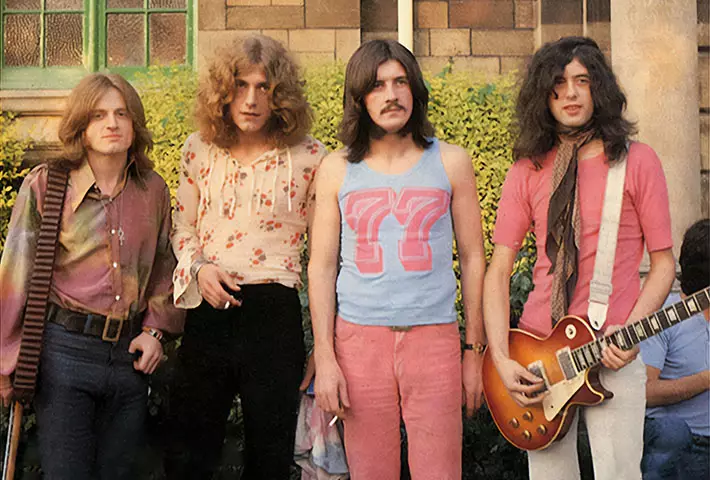In recent years, the landscape of cinema has evolved dramatically, particularly when it comes to genre popularity. While blockbuster films often dominate the box office, documentaries are starting to carve out a significant niche for themselves. As evidenced by the recent success of the music documentary concert film *Becoming Led Zeppelin*, the market for non-fiction storytelling in cinema continues to flourish, even amid challenges such as the Super Bowl weekend—traditionally an uninviting period for moviegoing.
*Becoming Led Zeppelin*, produced by Sony Pictures Classics, achieved a remarkable feat by grossing over $2.6 million during its opening weekend across 369 IMAX screens. This accomplishment marks a historic moment, labeling it as the highest-ever opening for an IMAX-exclusive music documentary. The film’s success showcases the enduring legacy of iconic rock bands and their fan base, stirring interest across diverse demographics in cities like Toronto, Cleveland, and St. Louis.
The documentary’s launch has not only solidified its position in the top ten but also represents a larger trend: audiences are increasingly drawn to films that delve into the stories behind their favorite musicians. By focusing on the journey of the band rather than just their hits, the film appeals to both casual listeners and dedicated fans, creating a comprehensive experience that enriches the cultural conversation around rock music.
Competing documentaries such as *No Other Land* have also shown promising results at the box office, particularly after expanding to fifteen new markets, including major urban centers like Los Angeles and Chicago. This documentary, which highlights the narratives of Palestinian and Israeli activists, grossed $96k in its expanded release, bringing its total to an admirable $144.6k. Such expansions elucidate a growing appetite for socially relevant films among audiences, particularly those eager to engage with pressing global issues.
Moreover, the success of *A Complete Unknown*, a biopic about Bob Dylan, resonates strongly within this shift in cinematic preferences. The film’s robust gross of $1.2 million in its seventh week, bringing its cumulative box office to an impressive $69 million, signifies not only its quality but also the audience’s persistent interest in musical narratives that challenge historical and cultural paradigms.
Alongside these documentaries, the introduction of newer films such as A24’s *Parthenope*, which debuted to $39.4k on just four screens, illustrates the diverse range of independent films making their appearance in theaters. Despite their limited runs, films like this contribute to the vibrant mosaic of cinema, proving that the market is not solely reliant on blockbuster releases.
The success of holdovers is equally noteworthy. For instance, Steven Soderbergh’s *Presence* continues to find audiences, earning $305k on 586 screens, pushing its cumulative total to $6.66 million. This persistence in viewership suggests sustained interest, reflecting the notion that good storytelling can defy conventional timelines typically associated with box office success.
Focus Features also continues to maintain a strong presence at the box office with its film *Nosferatu*, while competing with hits like *Downton Abbey*. A nuanced understanding of these films’ target audiences can explain their ongoing traction. The ability to engage fans through a blend of nostalgia and contemporary relevance is driving audience turnout in diverse cinema markets across the country.
As we observe these trends, it becomes apparent that documentary films are no longer confined to art-house theatres. Their growing popularity signals a shift in consumption patterns, where audiences are now seeking substantive, thought-provoking content that resonates with their experiences and cultural narratives.
The evolving dynamics of the film industry herald a promising future for documentaries. With record-breaking releases and appreciative audiences, it’s clear that the hunger for innovative storytelling continues to thrive, making cinematic experiences more inclusive and diverse than ever before.

